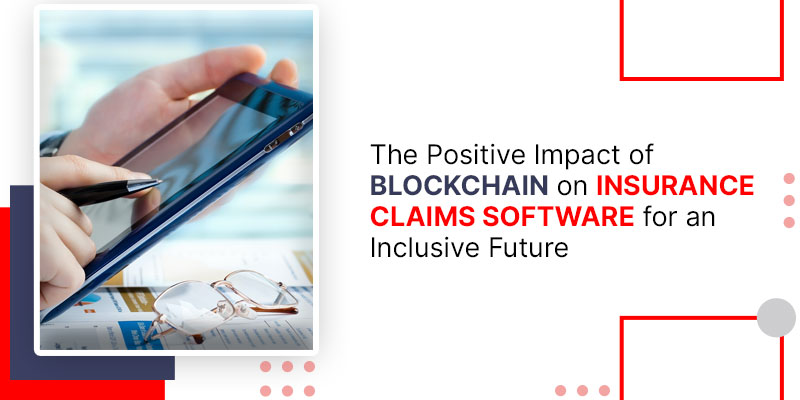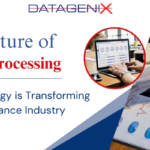Claims Software Systems: The Future of Smart Claims Handling
April 23, 2025
Envision a world where insurance functions flawlessly, characterized by trust and efficiency in every transaction. This goal is actualized via the transformative power of blockchain technology. Blockchain is not only a trendy term but rather a transformative force that is fundamentally altering the structure of insurance claims software. Imagine a situation in which the processing of claims becomes not merely quicker and more precise, but also inherently secure. This is the significant influence that blockchain brings to the insurance industry. Through the process of decentralization and data security, a new paradigm is established that promotes effectiveness and openness. Within this framework, the beneficial impact of blockchain technology on insurance claims software serves as a guiding light, leading us towards an all-encompassing future, where the complexities of claims administration are improved.
Comprehending the Difficulties
Before exploring the transformational impact of blockchain, it is crucial to comprehend the difficulties afflicting the existing health insurance claims processing systems. Errors, delays, and higher administrative expenses might result from manual procedures, paperwork, and the participation of several intermediaries. Furthermore, the absence of transparency might provide opportunities for fraudulent behavior, which can have negative effects on both insurance companies and policyholders.
Proposed Solution Based on Blockchain Technology
Blockchain, the fundamental technology that supports cryptocurrencies such as Bitcoin, offers a compelling resolution to these difficulties. Blockchain is essentially a decentralized ledger that securely and transparently records transactions over a network of computers.
Here is how it can transform health insurance claims software:
Transparency and immutability
Blockchain functions on a distributed network where every member has equal access to identical information. Each transaction is documented in a block, and once added to the chain, it becomes unchangeable – indicating that it cannot be modified or erased. Using this system, guarantees precise and easily understandable documentation of all transactions linked to claims, hence minimizing the possibility of fraudulent activities and mistakes.
Smart contracts
Knowledgeable contracts are autonomous contracts where the contractual obligations are encoded directly into computer code, allowing them to execute automatically. Smart contracts can automate a range of procedures related to health insurance claims, including the verification of policy data, the processing of claims, and the disbursement of payments. This not only expedites the whole process of handling claims but also reduces the reliance on middlemen.
Heightened Security
The cryptographic properties of blockchain provide a strong and resilient security layer. Every member of the network has a distinct cryptographic key, guaranteeing that only authorized users can access and alter particular information. This greatly reduces the likelihood of unlawful entry, data breaches, and cyber-attacks.
Efficient Data Exchange
Health insurance claims often include the exchange of confidential medical data among many parties, such as healthcare providers, insurers, and policyholders. Blockchain enables the safe and smooth exchange of data while upholding privacy and ensuring the integrity of the data. The efficient exchange of information may result in expedited claims processing and enhanced cooperation among the parties involved.
Minimized Instances Of Fraudulent Activities
Deceptive assertions pose a substantial worry within the insurance sector. The transparent and tamper-resistant feature of blockchain makes it arduous for malicious individuals to change data. In addition, the use of smart contracts for claim validation and processing enables automated identification of discrepancies, hence decreasing the probability of fraudulent behavior.
Expense Reduction
Blockchain technology, namely via the use of smart contracts, may greatly decrease the administrative expenses related to claims processing. By reducing the number of intermediaries and optimizing procedures, insurance companies may enhance operational efficiency and allocate resources more efficiently.
Enhanced Customer Experience
The use of blockchain technology results in more transparency and effectiveness, leading to an improved experience for policyholders. Claims may be expedited and their progress can be monitored in real-time. This not only improves consumer happiness but also fosters trust within the insurance ecosystem.
Case Studies and Implementation
Several initiatives around the globe are already exploring the integration of blockchain into health insurance claims software.
MediLedger
In the pharmaceutical sector, where product traceability is critical, the MediLedger project utilizes blockchain to create an interoperable system for tracking the authenticity of prescription drugs. This same concept could be applied to health insurance claims, ensuring the authenticity and accuracy of medical records.
Aetna and IBM
Aetna, a healthcare benefits company, collaborated with IBM to develop a blockchain solution for managing healthcare provider directories. The project aimed to improve the accuracy of provider information, reducing administrative costs and enhancing the overall efficiency of the healthcare network.
Obstacles and Factors to Take into Account
Although the potential advantages of using blockchain technology in health insurance claims software are significant, it is crucial to recognize the obstacles and factors that need to be taken into account. These obstacles may include legislative impediments, interoperability challenges, and the need for widespread adoption throughout the sector. To surmount these obstacles, it will be necessary for stakeholders, regulatory entities, and technology suppliers to collaborate.
Adherence to regulations and laws
The healthcare and insurance sectors are subject to extensive regulations. Deploying blockchain technology requires meticulous evaluation of existing legislation and may include cooperation with regulatory entities to guarantee adherence.
Interoperability refers to the ability of different systems or devices to work together and exchange information seamlessly. Attaining interoperability across diverse blockchain platforms and pre-existing systems is a formidable task. Continued attempts are being made to establish a standard, but for it to be widely accepted, industry players must collaborate.
Data privacy refers to the protection and control of personal information, ensuring that it is kept confidential and secure. The openness of blockchain technology may give rise to issues over the confidentiality of sensitive health data. To overcome these problems, implementations need to include strong privacy safeguards.
Conclusion
The use of blockchain technology in health insurance claims software offers significant potential for a future that is more transparent, efficient, and secure. Blockchain presents itself as a feasible solution to the problems of fraud, mistakes, and lack of transparency that the sector faces in conventional claims processing systems. Despite the challenges, the possible advantages of using blockchain technology in health insurance claim software, such as increased security, lower expenses, and higher customer satisfaction, make it a very promising path to pursue in the future. With the advancement of technology and the development of regulatory frameworks, we may see a significant change towards a healthcare ecosystem that is more transparent and efficient.
How Health Claims Management Software Transforming The Industry?
February 7, 2025How Claims Software Can Transform Your Claims Process?
January 29, 2025The Need For Healthcare Claims Management Software
January 13, 2025Reasons You Should Invest in Claims Management Software
January 7, 2025The Essential Guide To TPA Software Features & Benefits
December 24, 2024Claims Management Software: Key To Streamlining Your Business
December 18, 2024How TPA Software Solutions Transformed Medical Claims Management?
November 20, 2024









